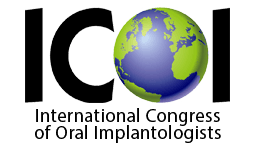Dangers of Tooth Loss
“Every tooth in a man’s head is more valuable than a diamond.” — Miguel de Cervantes
Edentulism, or tooth loss, is a source of embarrassment for over 178 million Americans. What some patients may not know about tooth loss, is that it doesn’t just affect your self-esteem— it makes it harder to eat your meals, speak properly, and smile as well
Untreated tooth loss can have serious negative consequences on your overall health. Oral health issues like gum disease contribute to tooth loss, and if not properly treated can cause continued deterioration. The effects of these other ailments can have a lasting, significant impact on your overall health
To achieve a brilliant smile and good health, it’s important to understand some of the common causes of tooth loss and the dangers of leaving it untreated. Explore our guide below to learn more.
Common Causes of Tooth Loss
Gum Disease
Gum disease is the most common cause of tooth loss in adults. It’s possible to treat gum disease, and we will customize a treatment plan based on the level of decay in a patient’s jaw.
Tobacco & Alcohol Use
Alcohol can also cause dry mouth, and expose your teeth to high levels of acid and sugar. Therefore, smoking and drinking in conjunction significantly increase your chances of developing these oral health issues.
Osteoporosis
Poor Dental Hygiene
Jawbone and Dental Resorption
Dental Resorption includes internal and external resorption.
- Internal dental resorption occurs when inflamed dental tissue is absorbed into the body, hollowing out and weakening the tooth.
- External dental resorption occurs when any outside part of the tooth, including the roots, is damaged by swelling or loss of bone and tissue. This leads to weakened, looser teeth.
Common Effects of Tooth Loss
Dental Misalignment
Resorption
Cardiovascular Disease
Poor Digestion
- Nutritional deficit
- Obesity
- Dehydration
- Diabetes
- Choking
- Cardiovascular disease
Gum Disease
Tooth loss and dental trauma leave open wounds in your teeth and gums where bacteria can enter and accumulate. These bacteria can cause infection and disease.
Tooth Loss Prevention Methods
While tooth loss and its associated issues can be intimidating, most prevention methods are simple and effective. With preventative health care and proper oral hygiene, you’ll greatly reduce your chances of tooth loss and better protect your overall health.
Practice Proper Oral Hygiene
Clean your tongue to prevent bad breath and help eliminate infectious bacteria. Remember to replace your toothbrush every three months, or sooner if the bristles begin to look worn out.
Avoid Alcohol and Tobacco
Eat A Balanced Diet
Regular Dental Exams
Start Your Smile Care Today, With Reger Family Dental!
Maintenance and prevention are key factors in maintaining your oral health and preventing related oral health issues. At Reger Family Dental, we offer professional dental health services that help keep your smile full and your body healthy.
We encourage you to call our practice in San Antonio, TX for a consultation by dialing 210-960-1300 or filling out our online contact form. We look forward to helping you on your journey to a healthier smile!
Frequently Asked Questions
How can I prevent bone loss after a tooth extraction?
Discuss replacing your tooth after extraction with Dr. Reger. We’ll work with you to find the best implant solutions for your smile.
Can jawbone loss be restored?
If you want to restore functionality to your teeth and smile but don’t have the jawbone density for dental implants, Dr. Reger can help. Discuss your dental implant and supplemental procedure options at Reger Family Dental.
I’ve already lost teeth, what should I do?
Dental implants remain an efficient and permanent option for treating tooth loss. Unlike removable orthodontic appliances, dental implants help seal off open wounds in your gums and stimulate your jawbone to prevent resorption.
To begin receiving treatment for missing teeth, call our San Antonio office at 210-960-1300 or fill out our online contact form and a team member will get back to you shortly.
Can I prevent tooth loss without seeing a dentist?
Regular dental exams can be crucial in the early detection of oral diseases and related illnesses such as tooth infection, neck and head cancers, and gum disease.
You can schedule a dental exam with Dr. Reger by contacting our San Antonio, TX office. Call us at (210)-960-1300 or fill out our online contact form.




